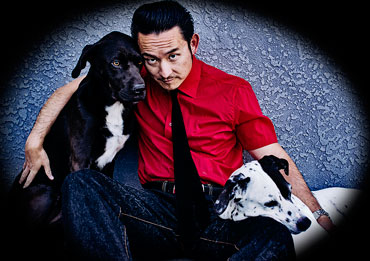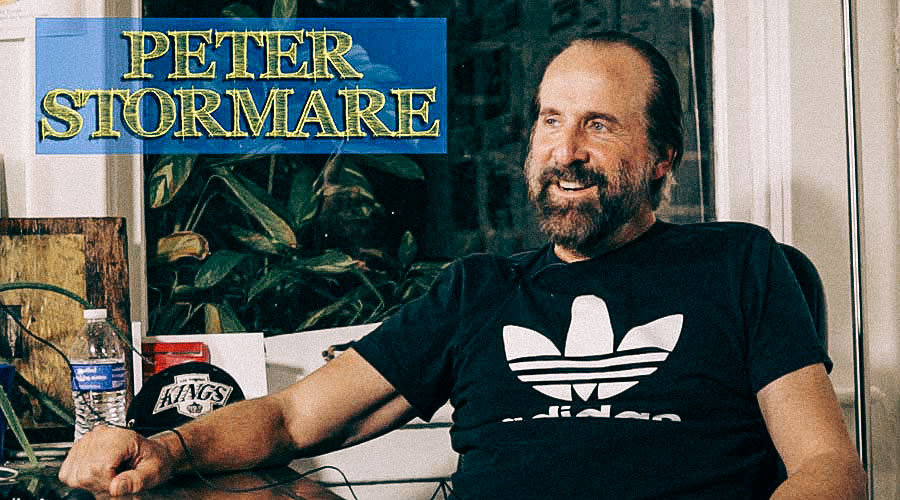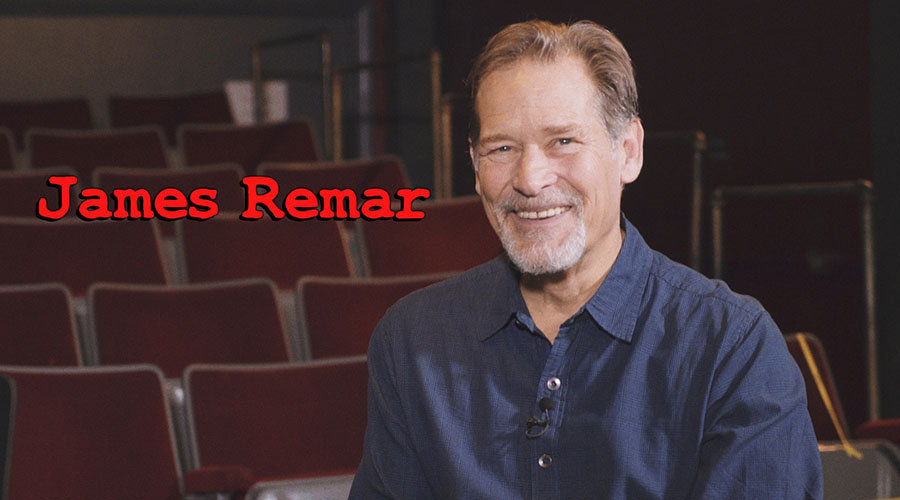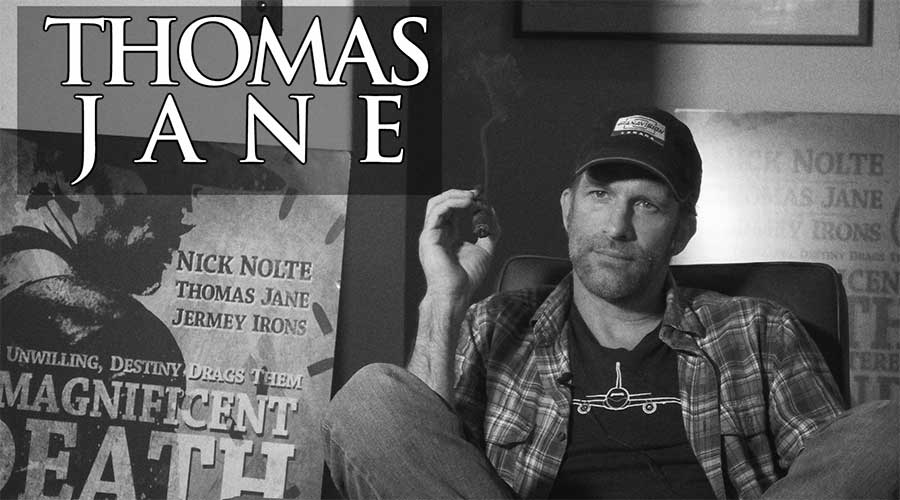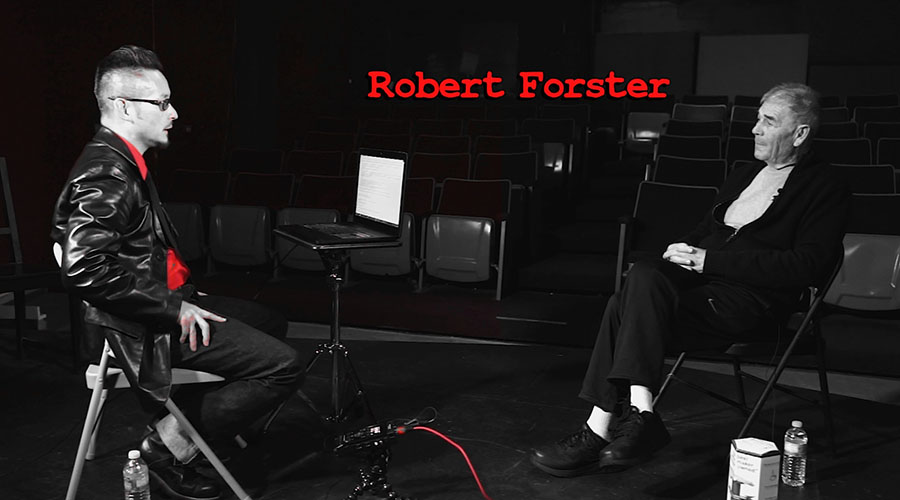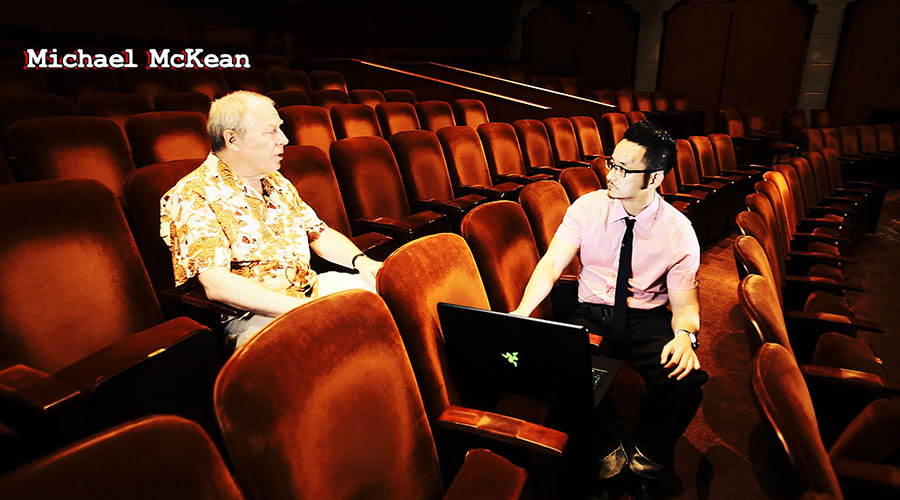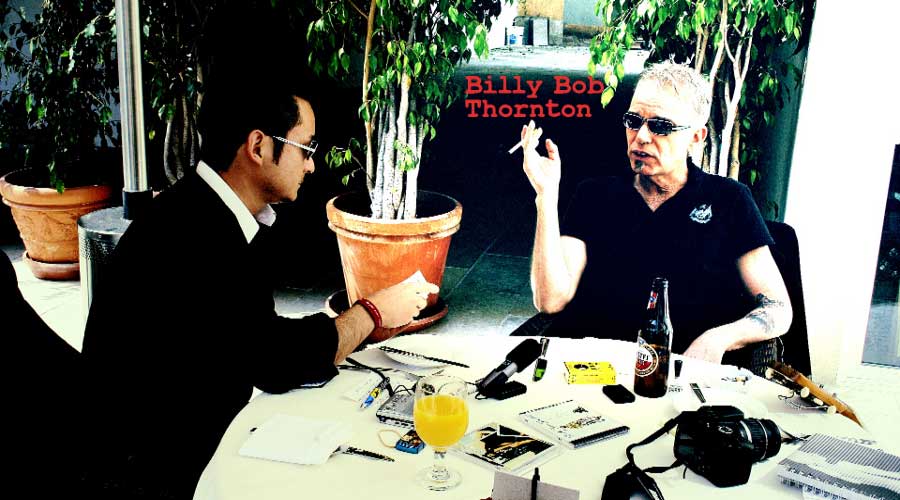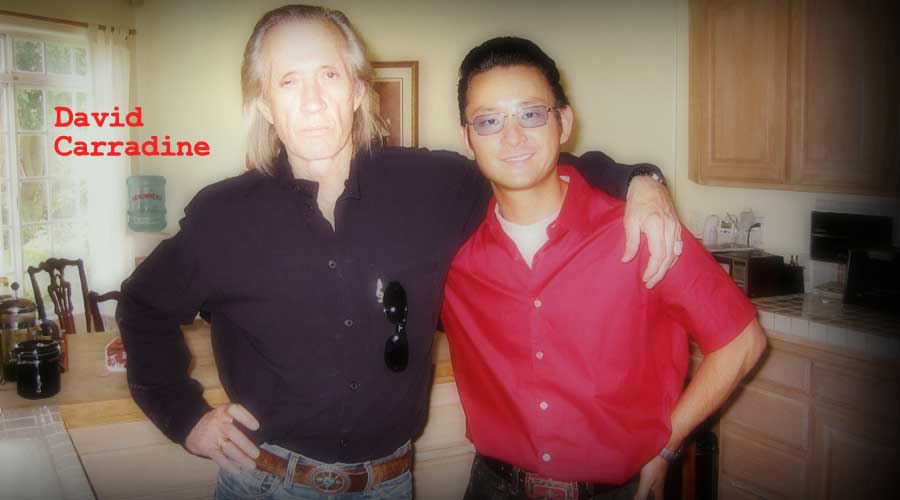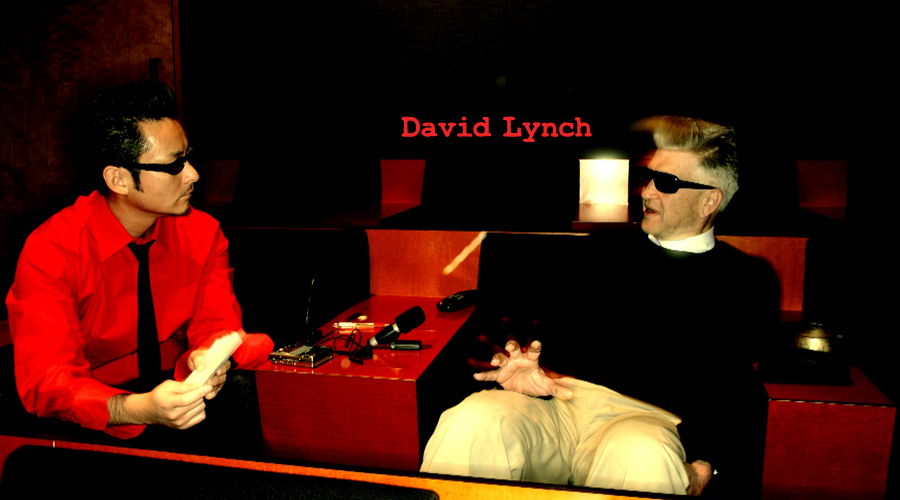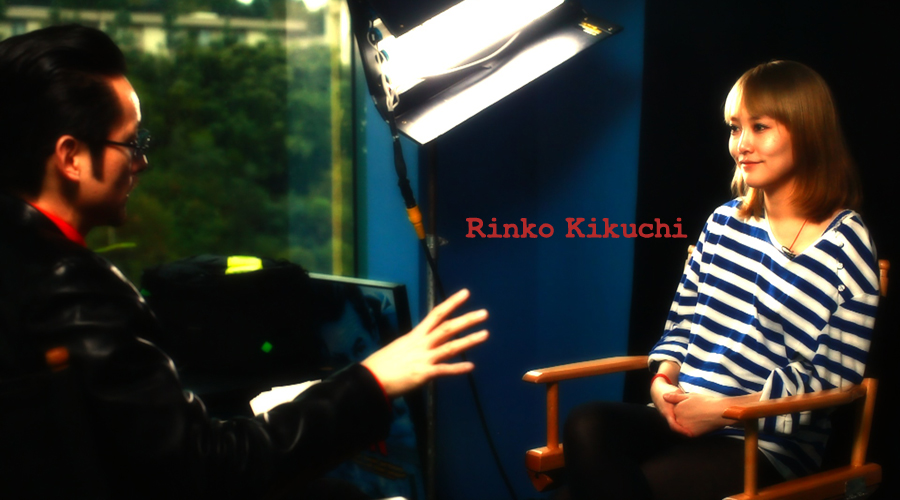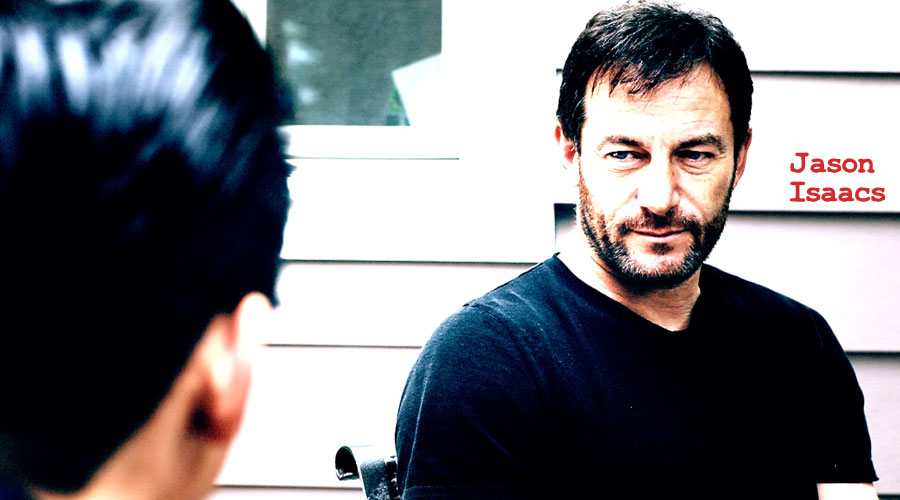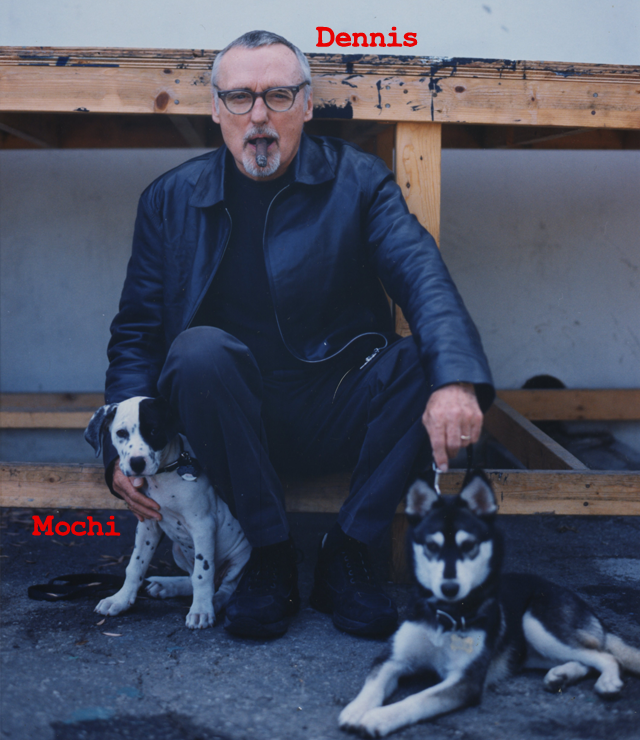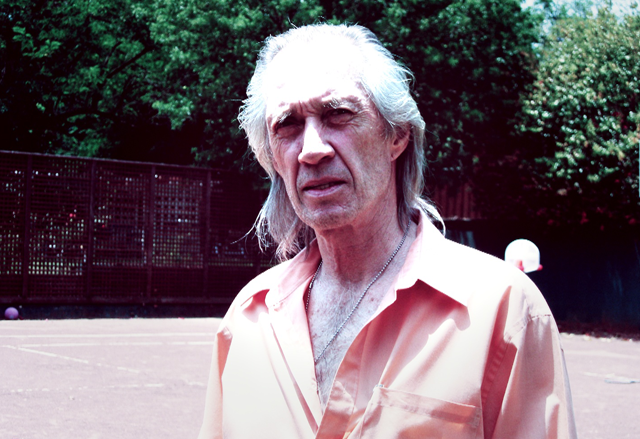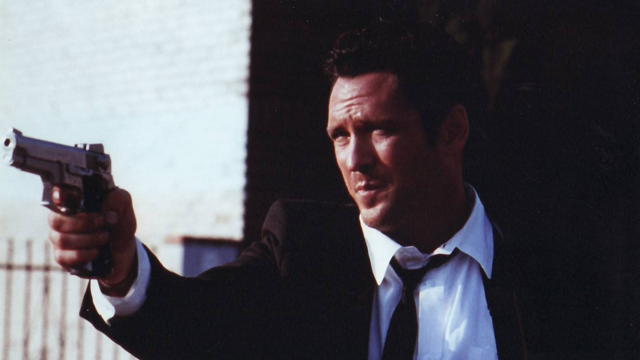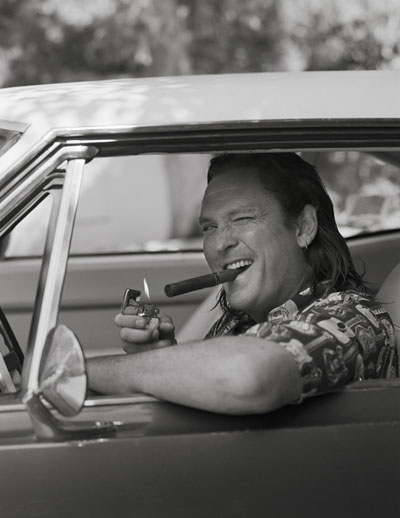Billy Bob Thornton Interview (2007)
(Released in FULL for the first time in August 21, 2013)

BILLY BOB THORNTON INTERVIEW CONTENTS :
- Loving L.A.
- "Sling Blade" was the difference between being a working actor and a movie star"
- "One False Move" was the real brig break, not "Sling Blade"
- Playing Carl Childers in front of Larry Meistrich
- The Bad Santa kid
- "I wouldn't want to be a Director for hire"
- "Armageddon" & Bruce Willis
- The paparazzi & entertainment shows
- Marriages & relationships
- Meeting Billy Wylder
- Still trying to prove something to dad
- Playing Ed Crane in "The Man Who Wasn't There"
- "You do what you know"
- "A good actor can spot another actor's bullshit"
- "I begged Frank Darabont to be in "The Majestic"
- "I could've played "Ironman"
- "Bad Santa", Bill Murray, Jack Nicholson, Gene Hackman, Harvey Keitel, & Marty Scorcese
- Billy Bob's acting method - Life experience
- Billy Bob's music
- "Brad Pitt's a great guy!"
- Toughest scene to shoot, Heath Ledger, & Billy Bob's advice to young actor
- Billy Bob on working the Coen Brothers and James Gandolfini
- George Clooney, Sean Penn, Denzel Washington, & do-overs
- The Oscars and not playing the game
- Character most like Billy Bob
- The Boxmasters and Billy Bob's music
- Billy Bob's fear
- Final Words
- Small talk
Billy Bob Thornton (born August 4, 1955) is an American actor, director, musician, playwright and screenwriter. Thornton's early screen roles was as a cast member on the CBS sitcom Hearts Afire and in several early 1990s films including On Deadly Ground and Tombstone. In the mid-1990s, after writing, directing, and starring in the independent film Sling Blade, he won an Academy Award for Best Writing (Adapted Screenplay). He appeared in several major film roles following Sling Blade 's success, including 1998's Armageddon and A Simple Plan. During the late 1990s, Thornton, who has had a life-long love for music, began a career as a singer-songwriter. He released three albums and he was the singer of a blues rock band.
Thornton was born in Hot Springs, Arkansas, the son of Virginia Roberta (née Faulkner), an alleged psychic[citation needed], and William Raymond "Billy Ray" Thornton (November 1929 - August 1974), a high-school history teacher and basketball coach. He is the oldest of three brothers, the others are Jimmy Don Thornton (April 1958 - October 1988) and John David Thornton (born 1969). Thornton lived in both Alpine, Arkansas and Malvern, Arkansas during his childhood, and also spent time with his grandfather, Otis Thornton, a forest ranger, in a small shack in the woods.[citation needed] He was raised a Methodist, in an extended family in a shack that had neither electricity nor plumbing. Thornton graduated high school in 1973. A good high school baseball player, he tried out for the Kansas City Royals, but was let go after an injury. It was at the Royals tryouts that Thornton earned his nickname, Bad Santa after leaving a less than hygenic "present" in a competitor's locker. After a short period laying asphalt for the Arkansas State Transportation Department, he attended Henderson State University, in Arkadelphia, Arkansas, to pursue studies in psychology, but dropped out after two semesters.
In the late 1980s, Thornton settled in Los Angeles, to pursue his career as an actor, with future writing partner Tom Epperson. Thornton initially had a difficult time succeeding as an actor, and worked in telemarketing, offshore wind farming, and fast food management between auditioning for acting jobs. He also played drums and sang with South African rock band Jack Hammer. While Thornton worked as a waiter for an industry event, he served film director and screenwriter Billy Wilder, who is famous for films such as Double Indemnity and Sunset Boulevard. Thornton struck up a conversation with Wilder, who advised Thornton to consider a career as a screenwriter, for which he eventually won an Oscar in the category of best screenplay.
One of Thornton's early screen roles was as a cast member on the CBS sitcom Hearts Afire with John Ritter and Markie Post. His role as the villain in 1992's One False Move, which he also co-wrote, brought him to the attention of critics. He also had small roles in the early 1990s films Indecent Proposal, On Deadly Ground, Bound by Honor, Grey Knight, and Tombstone. Thornton put Wilder's advice to good use, and went on to write, direct and star in the independent film Sling Blade, which was released in 1996. The film, an expansion of a short film titled Some Folks Call It a Sling Blade, introduced the story of Karl Childers, a mentally handicapped man imprisoned for a gruesome and seemingly inexplicable murder. Sling Blade garnered international acclaim. Thornton's screenplay earned him an Academy Award for Best Adapted Screenplay, a Writers Guild of America Award, and an Edgar Award, while his performance received Oscar and Screen Actors Guild nominations for Best Actor.
In 1998, he portrayed the James-Carville-like Richard Jemmons in Primary Colors. Thornton adapted the book All the Pretty Horses into a 2000 film with the same name, starring Matt Damon and Penélope Cruz. The negative experience (he was forced to cut more than an hour) led to his decision to never direct another film (a subsequent release, Daddy and Them, had been filmed earlier). Also in 2000, an early script which he and Tom Epperson wrote together was made into The Gift which starred Cate Blanchett, Hilary Swank, Keanu Reeves, Katie Holmes, Greg Kinnear, and Giovanni Ribisi.
During the late 1990s, Thornton, who has had a life-long love for music, began a career as a singer-songwriter. He released a roots rock album titled Private Radio in 2001, and two more albums, The Edge of the World (2003) and Hobo (2005). Thornton was the singer of a blues rock band named Tres Hombres. Guitarist Billy Gibbons referred to the band as "The best little cover band in Texas", and Thornton bears a tattoo with the band's name on it. He performed the Warren Zevon song The Wind on the tribute album Enjoy Every Sandwich: Songs of Warren Zevon. Thornton recorded a cover of the Johnny Cash classic "Ring of Fire" for the Oxford American magazine's Southern Music CD in 2001.
Thornton's screen persona has been described by the press as that of a "tattooed, hirsute man's man". He appeared in several major film roles following Sling Blade 's success, including 1998's Armageddon and A Simple Plan. In 2001 he had starring roles in three hollywood pictures, Monster's Ball, Bandits and The Man Who Wasn't There, for which he received many awards. He played a malicious mall Santa Claus in 2003's Bad Santa, a black comedy that performed well at the box office and established Thornton as a leading comic actor, and in the same year, portrayed a womanizing President of the United States in the British romantic comedy Love Actually. Thornton has stated that, following Bad Santa's success, audiences "like to watch [him] play that kind of guy," and "they [casting directors] call [him] up when they need an asshole. It's kinda that simple... you know how narrow the imagination in this business can be." In 2004 he played Davy Crockett in The Alamo.
He appeared in the comic film School for Scoundrels, which was released on September 29, 2006. In the film, he plays a self-help doctor; the role was written specifically for Thornton. More recent films include The Astronaut Farmer, a drama released on February 23, 2007, and the comedy, Mr. Woodcock, in which Thornton plays a sadistic gym teacher. In September 2008, Thornton starred in the big brother action movie Eagle Eye along side Shia LaBeouf and Michelle Monaghan. He will next star in the drama Peace Like a River. Thornton has also expressed an interest in directing another film, possibly a period piece about cave explorer Floyd Collins, based on the book Trapped! The Story of Floyd Collins by Robert K. Murray and Roger Brucker. Thornton received a star on the Hollywood Walk of Fame on October 7, 2004.
On April 8, 2009, Thornton and his musical group The Boxmasters appeared on CBC Radio One program Q, interviewed by Jian Ghomeshi in which Thornton's responses were either incomprehensible or discourteous. Eventually, Thornton explained he had "instructed" the show's producers to not ask questions about his movie career. Ghomeshi had mentioned Thornton’s acting in the introduction. Thornton also complained that Canadian audiences were like “mashed potatoes without the gravy". The widely criticized interview received international media attention and on YouTube. The following night, opening for Willie Nelson at Toronto's Massey Hall, Thornton stated mid-set he liked Canadians but not the CBC radio host, resulting in boos and catcalls. On April 10 Thornton announced The Boxmasters would not continue with Nelson in Canada due to some of the crew and band having the flu.
Thornton has frequently disclosed that he has obsessive–compulsive disorder. He and rock singer Warren Zevon became close friends after sharing their common experiences with the disorder. Various idiosyncratic behaviors have been well-documented in interviews with the actor; among these is a phobia of antique furniture — a disorder shared by Dwight Yoakam's character Doyle Hargraves in the Thornton-penned Sling Blade, and by Thornton's own character in the 2001 film Bandits. Additionally, he has stated that he has a fear of certain types of silverware, a trait assumed by his character, Hank Grotowski, in 2001's Monster's Ball, in which Grotowski insists on a plastic spoon for his daily bowl of chocolate ice cream. In a 2004 interview with The Independent, Thornton explained: "It's just that I won't use real silver. You know, like the big, old, heavy-ass forks and knives, I can't do that. It's the same thing as the antique furniture. I just don't like old stuff. I'm creeped out by it, and I have no explanation why...I don't have a phobia about American antiques, it's mostly French — you know, like the big, old, gold-carved chairs with the velvet cushions. The Louis XIV type. That's what creeps me out. I can spot the imitation antiques a mile off. They have a different vibe. Not as much dust." In addition to his aversion to silver cutlery, velvet, and "creepy, castle-y stuff," Thornton confesses that "pieces from 1700 and 1800 France and England really freak me out, especially harpsichords."
Thornton has been married five times, most notably to actress Angelina Jolie. Each of Thornton's marriages ended in divorce. Thorton and Jolie were known for their eccentric behavior, which reportedly included wearing vials of each others' blood around their necks; Thornton later clarified that the "vials" were, instead, two small lockets, each containing only a single drop of blood. Thornton and Jolie adopted a child from Cambodia whom they named Maddox. Jolie's divorce petition defined the child as both her and Thornton's, and requested the Court grant her custody and Thornton reasonable visitation.
Thornton lives in Los Angeles, and he is the father of four children. His first marriage, to Melissa Gatlin, produced Amanda Spence Brumfield on June 30, 1979; his fourth wife, Pietra Cherniak, bore William Langston on June 27, 1993 and Harry James on June 19, 1994; and Thornton and his current girlfriend Connie Angland bore Bella on September 22, 2004. Thornton has stated that he will likely not marry again, specifying that he believes marriage "doesn't work" for him. He has two younger brothers, Jimmy Don, (who died abruptly of a heart attack in 1988), and John David, who resides in Arkansas. Jimmy Don Thornton wrote a number of songs, two of which--"Island Avenue" and "Emily"--Thornton has recorded on his solo albums. A baseball fan, his favorite team is the St. Louis Cardinals. He has said his childhood dream was to play for the Cardinals. Thornton narrated "The 2006 World Series Film," the year-end retrospective DVD chronicling the Cardinals' championship season.

